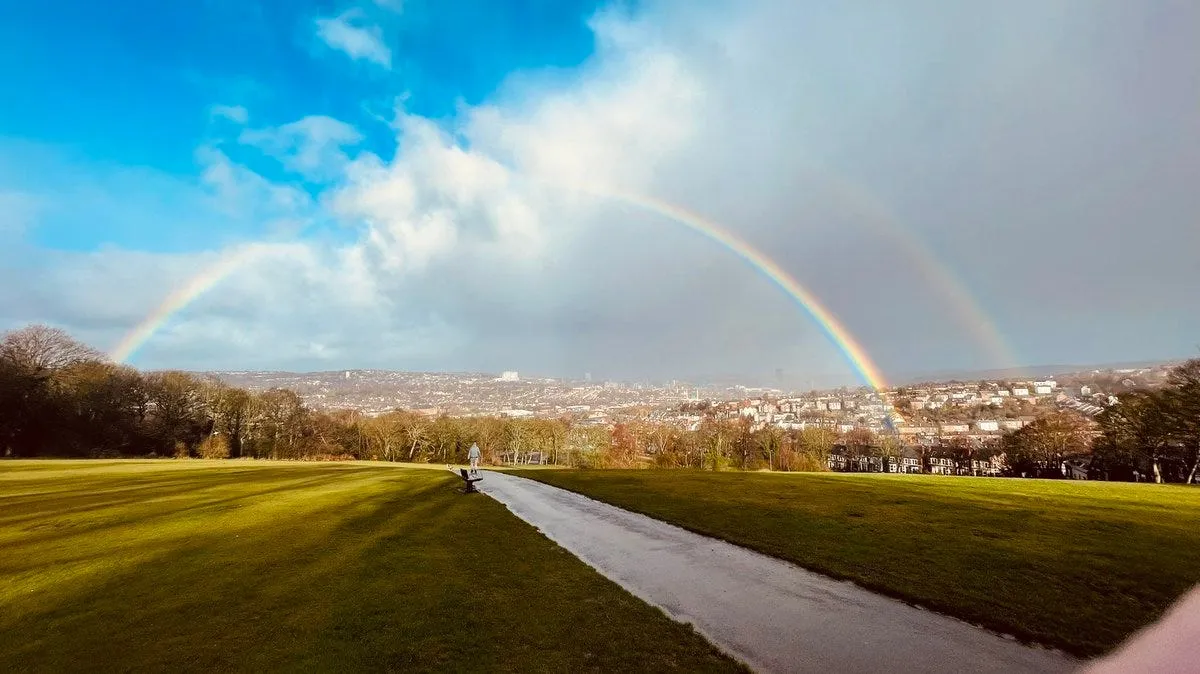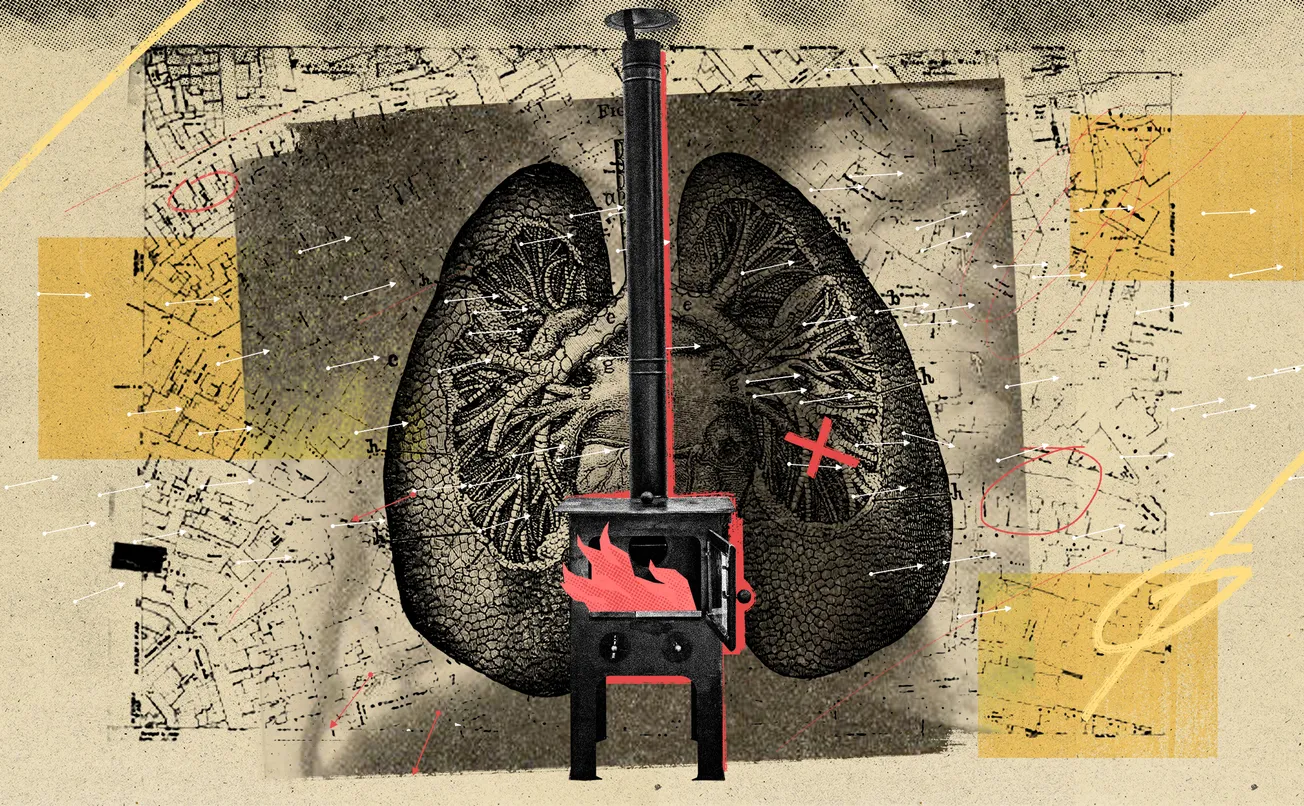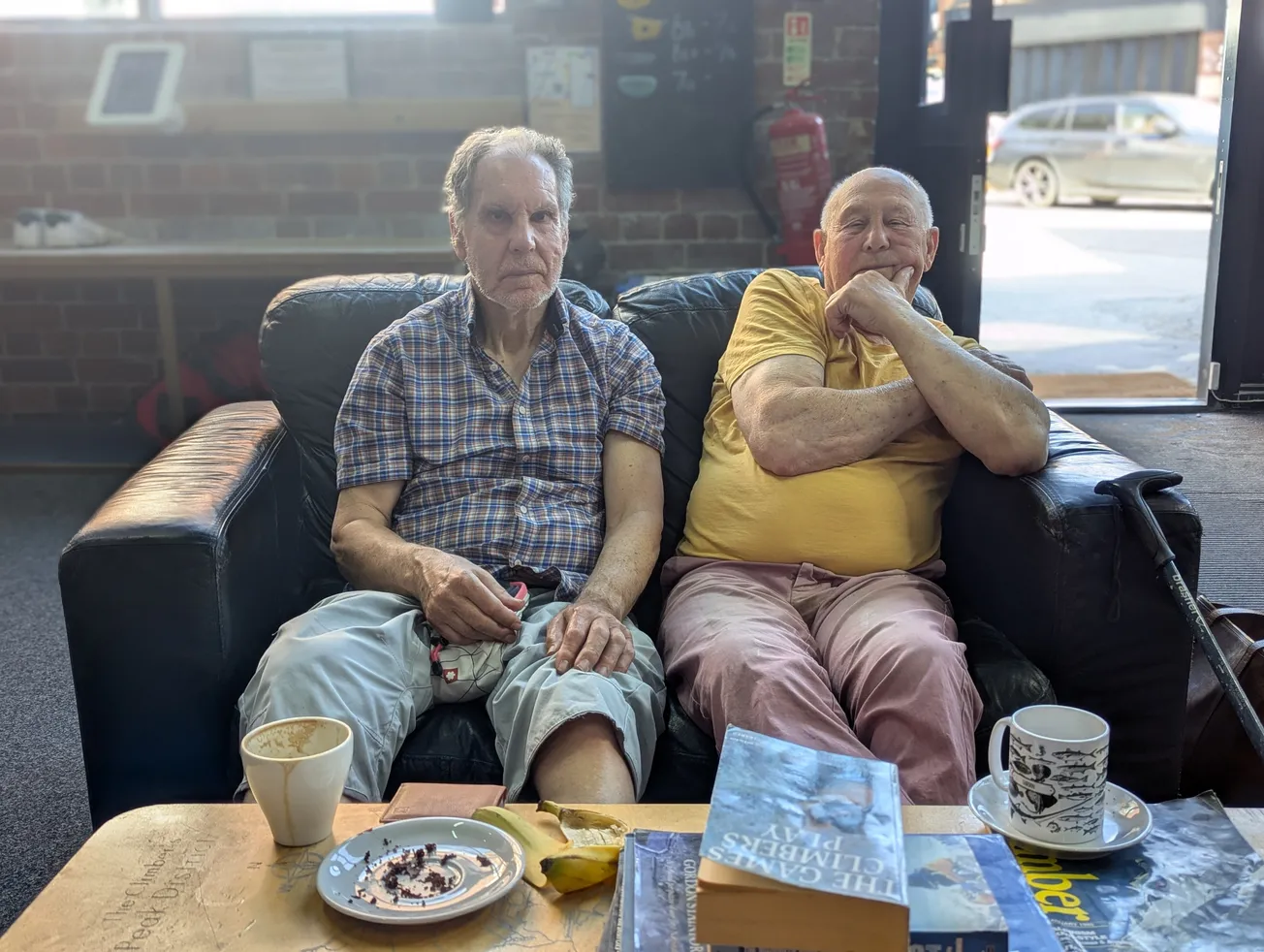Good afternoon readers — and welcome to this week’s Monday briefing.
Today we have a look at so-called “community wealth building”, and how a candidate to be South Yorkshire Mayor wants to use it to transform our region’s economy. We also feature a story about a new beer made from locally grown wheat and recommend a sure-to-be unmissable performance by the “cosmic dross” band Henge.
It’s fair to say that our interview with council leader Terry Fox divided opinion at the weekend. Some felt the piece painted him as a “relatable, solid leader, grounded in his community” while others said he had been “damned by his own words”. Decide for yourselves by reading the full article, but here is what he had to say about the position of CEO Kate Josephs.
“I’ve had hundreds of letters and emails about it so I know how people feel,” he says. “People have poured out their grief to me, re-living the experience of losing loved ones during the pandemic.” After the committee has reported, Josephs will have “to look in the mirror and see how she feels”, he added.
Talking snooker in my latest piece for @sheffieldtrib – thank you to @Ding_academy for letting us see some world class players in training!
— Dani Cole (@danithecole) 12:44 PM ∙ Feb 3, 2022
Last week we sent two great stories to our ever-growing band of 568 members. The first was a piece by Dan about folklorist Sidney Oldall Addy who has been described as Sheffield’s answer to the Brothers Grimm. And the second was a report by Dani from the Ding Junhui Snooker Academy where a steady stream of hopefuls travel to Sheffield from all over the world to try to make it in the professional game. An extract from that second piece is below.
The first thing I notice is the confessional hush. As the door closes behind me, the noises of Haymarket and clamour of roadworks and trams falls away. As I pad towards the office, a few people glance up to look at me before turning their attention back to their training. Each snooker table is illuminated by a long panel of white lights. Nobody talks, and the only sound I hear is the clean, round click of snooker balls.
To get both of this week’s stories and help support a new sustainable form of local journalism in Sheffield, please consider subscribing using the button below. It costs less than £1.40 a week if you pay for the year upfront.
This week’s weather
Our weather forecast comes from dedicated Sheffield weather service Steel City Skies, who say the week will see conditions turning milder with cloud and patchy rain in time for midweek. This clears to colder but sunnier weather from Thursday.
Monday 🌦 cold start, with bright spells giving way to more cloud. Patchy rain risk later and overnight. Highs of 10°C.
Tuesday ☂️ extensive cloud with milder temperatures. Patchy light rain, most persistent over high ground. Highs of 12°C.
Wednesday ☁️ cloud slowly breaking up, some brightness possible later as a cold front finally clears south. Turning colder overnight. Highs of 10°C,
Thursday ⛅️ clearer and colder weather with more in the way of sunshine and a few wintry showers. Highs of 6°C.
Friday 💨 similarly chilly with breezes from the northwest. A few showers but plenty of dry and bright weather, too. Highs of 7°C.
Outlook: The chilly but bright weather continues into the weekend with a few wintry showers affecting the hills especially. Temperatures close to average.
To see the full forecast and keep up to date with any changes to the outlook, follow Steel City Skies on Facebook, Twitter, or Instagram.
The big story: How South Yorkshire could ‘take back control’
Top line: The leading candidate to be South Yorkshire Mayor says if he is elected in May he’ll introduce a “community wealth building strategy” in the county. But what is that and how could it help our economy?
Taking back control: A community wealth building strategy aims to ensure that more of the money that is spent in an area is redirected back into the local economy.
- Councils spend more of their own money locally and seek to persuade “anchor institutions” such as universities, the police and housing associations to follow suit.
- Community wealth building is also sometimes called “progressive procurement” where the spending power of the public sector is harnessed for social aims.
A manifesto pledge: Victorious Labour candidate Oliver Coppard made community wealth building a key part of his campaign. At a “hustings” event with other candidates in December, talked about why he was in favour of such a strategy in South Yorkshire: He said:
Community wealth building is about using the power of the anchor institutions in our region to invest in our communities so they are more sustainable. More local economies will make sure that people can get good jobs in the region and not have to travel outside.

The Preston Model: The idea was first tried in the US city of Cleveland, Ohio, and several places in the UK including Manchester have been doing something like it for more than 10 years. But the UK city most closely associated with it is Preston in Lancashire, who started theirs in 2013.
Has it worked? A study by the Centre for Local Economic Strategies found that in 2013, only 5% of £450m annual anchor institution spending was in Preston. By 2017, this £38m had increased to £111m.
- In cash terms, this meant an extra £75m was being spent in the city rather than elsewhere — around £530 per person. The study found that the anchor institutions’ spending in the wider Lancashire economy also doubled from 39% to 79%.
- A June 2019 Demos report into the model shows that since 2014, Preston’s unemployment rate has been lower than the England average, deprivation has been reduced in the poorest areas and productivity and wages have increased.
Drawbacks: Some say that while community wealth strategies might feel good, they make little economic sense. Public bodies’ budgets end up stretched as they are inevitably spending more to use smaller, local companies to provide services rather than cheaper, national ones. Ultimately the increase in taxes needed to pay for this could wipe out the economic benefits.
Bottom line: If Coppard is elected in May he’ll be expected to make good on his campaign pledge. However, Preston is tiny compared to South Yorkshire and getting all four councils and all the public sector bodies within them to agree to take part in such a scheme will be devilishly difficult. We’ll be speaking to Mr Coppard about his proposals before the election.
Chinese New Year
It was great to see a traditional Chinese Lion dance through Sheffield city centre this lunchtime in honour of the Chinese New Year! A lion is smaller than a dragon and the operators are completely encased. The dances are intended to bring luck and prosperity 🐲 #Sheffield
— The Steel City Snapper (@steelcitysnaps) 3:01 PM ∙ Feb 6, 2022
Some fantastic photos (and video) as always taken by the Steel City Snapper of Chinese New Year celebrations in Sheffield yesterday. Fireworks have been set off in the city every night since Tuesday and this Lion Dance took place in various locations on Sunday. 2022, in case you were wondering, is the Year of the Tiger.
Covid-19 update
Cases: The Covid case rate in Sheffield — the number of positive cases per 100,000 people over seven days — is falling rapidly again. In the week to last Tuesday (February 1), it stood at 808.5, a fall of 1,635 cases or 25.6%. The England average was down 12.3% to 973.3.
Hospitals: 253 patients are currently being treated for Covid-19 at Sheffield’s hospitals, a fall of 15 from last week. 5 of these patients are on ventilation, the same number as last week. At least 11 deaths linked to the virus have taken place over the last seven days.
Home of the week

This six-bedroom detached house in Endcliffe was designed by modernist architect Peter F. Smith in the 1960s. It is on the market for £725,000. WowHaus has a piece about it here.
Our favourite reads
- More proof that Sheffield-born pop star Self Esteem is on the verge of global superstardom comes from this piece in The Sunday Times Magazine by Dolly Alderton. Rebecca Lucy Taylor (her real name) talks about her past in indie band Slow Club and what led her to a solo career. Her UK tour begins on February 28.
- A worrying story in The Star about a Sheffield gay nightclub who say they are constantly targeted by homophobic abuse. The manager of Dempsey’s on Hereford Street has written an open letter to the Chief Constable of South Yorkshire Police Lauren Poultney to ask for more support to protect staff and customers.
- A fascinating read in Now Then about a Sheffield-brewed beer that has been made with locally produced wheat. Last year, the Sheffield Wheat Experiment harvested its first crop aiming to prove that food production needn’t rest on industrial agriculture methods. Now a new beer — Growers’ Union — has been brewed with the wheat.
- A great piece in The Sunday Times about the Rotherham neighbourhoods which are suffering power cuts due to the number of cannabis farms in the area. Reporter Hannah Al-Othman accompanies local police and their “big red key” on a drugs warrant in Brinsworth. South Yorkshire Live has previously covered the issue here.
- Veteran Sheffield politician Lord David Blunkett writes in The Sun about the current political landscape and Labour’s chances at the next general election. He says suggestions of a “seismic shift” in the polls are premature and despite the government’s current turmoil the party still has a lot to do to win back people’s trust.
Are there more rainbows in Sheffield?
Lovely double rainbow over my favourite little park in Sheffield
— Andy Kershaw Media 🎙 (@andyksheffield) 1:47 PM ∙ Feb 6, 2022
@Sheffieldis
Someone told me recently that one of the things they liked about Sheffield was the number of rainbows we get. She said that since moving here she had seen more than anywhere else she had ever lived. I don’t know why that might be but it could well be true, as I see plenty from my Park Hill flat. This magnificent double rainbow was captured in Meersbrook Park last week by journalist Andy Kershaw.
Things to do
Art: A new exhibition of the work of Sheffield artist Kay Bainbridge has opened at The Social art gallery on Snig Hill. The title — Arrhythmia (Living with uncertainty) — is taken from one of the paintings but also reflects the feelings of unease provoked by the Covid pandemic. As well as the gallery, the venue has a bar with regular guest beers and is also a social enterprise which provides skills for people who are disadvantaged in the labour market.
Music: Another “earth visitation” will take place in Sheffield this week as The Foundry (University of Sheffield Students’ Union) welcomes Henge back to the city. I saw them at Victoria Quays last summer and their live show simply has to be seen to be believed. For a flavour of the kind of extra-terrestrial strangeness you can expect, see this piece in Now Then. Also playing the Leadmill the same night are surrealist indie band Half Man, Half Biscuit.

Podcast: A fascinating podcast from Politico all about the long history of “Levelling Up”, Boris Johnson’s big idea to regenerate the North of England. Host and former Yorkshire Post political editor Jack Blanchard speaks to author Brian Groom about the century-long history of regional policy. He also talks to former Deputy PM Michael Heseltine and former Sheffield MP Richard Caborn about attempts to address the north-south divide over the last 40 years.
Philosophy: Sharing the view: Philosophy in the Gallery is a new event at the Graves Gallery which brings people together to talk about the ideas that emerge when we look at art. The free session takes place on Friday, February 11 from 10.30am to 12pm. A Radio 4 Front Row piece about the sessions is still available here and The Tribune will be writing about our visit to a Philosophy in Pubs session organised by the same people this week.
Film: The Village Screen open-air cinema comes back to Sheffield’s Peddler Warehouse this weekend for a Valentine’s (or if you prefer a Galentine’s) Day special. On Sunday, February 13, they’re showing two films: the Tina Fey-penned Mean Girls at 3pm and the Shakespeare-inspired 10 Things I Hate About You at 6.45pm. And on Valentine’s Day itself (Monday, February 14) they’re showing Quentin Tarantino-scripted cult classic True Romance.
Votes for Women
Formed 171 years ago this month, the Sheffield Female Political Association was the first women’s suffrage movement anywhere in the UK. The group was set up in February 1851 by several Sheffield women involved in the Chartist movement as well as social reformer, abolitionist and feminist pioneer Anne Knight.

A report about its creation in the Sheffield Free Press quoted one organiser:
To the women of England. Beloved sisters, it is our birthright equally with our brother to vote for our political destiny. And we ask in the name of justice, must we continue ever the silent and servile victims? Is the oppression to last forever? We the women of the democracy of Sheffield answer, no.

Comments
How to comment:
If you are already a member,
click here to sign in
and leave a comment.
If you aren't a member,
sign up here
to be able to leave a comment.
To add your photo, click here to create a profile on Gravatar.







